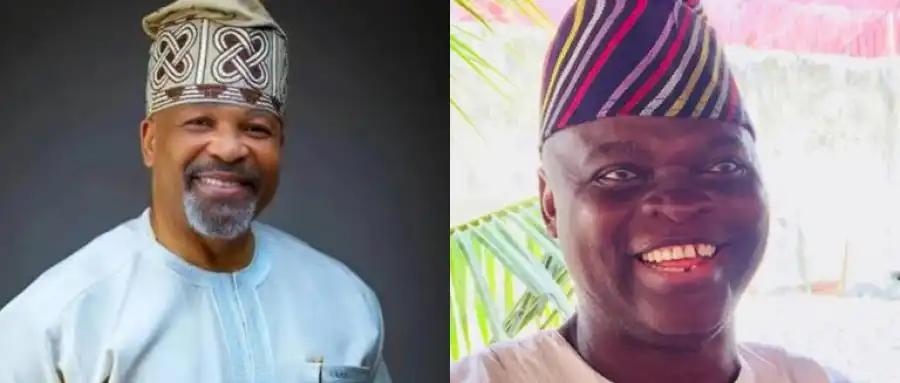Yemi Solade Claims Big Abass Shot Nigeria’s First Home Video

Yemi Solade Claims Big Abass Shot Nigeria’s First Home Video
Veteran Nigerian actor Yemi Solade has reignited the debate surrounding the true origins of Nollywood, shedding light on what he believes to be a long-overlooked chapter in Nigerian film history.
Speaking on The Father’s Path with Temitope podcast, Solade disputed the widely accepted narrative that Nollywood began with the 1992 release of Living in Bondage. Instead, he asserted that the first Nigerian home video emerged from the Yoruba film industry years earlier.
“The first man that shot home video in this country, his name is Ade Ajiboye (Big Abass); he’s alive,” Solade said.
He explained that as early as the late 1980s, Yoruba filmmakers had already begun recording stage plays using camcorders. These productions were distributed and sold in bookshops, following a model similar to how religious sermons were marketed. Solade credited industry pioneers like Muhideen Alade Aromire, who produced Ekun in 1989, as key figures in this early movement.
Solade also referenced legendary names such as Hubert Ogunde, Baba Sala, Ade Love, and Ola Balogun, noting that their work laid the groundwork for what later evolved into Nollywood. However, he attributed the lack of recognition for Yoruba filmmakers to poor documentation.
“My people in the Yoruba setting didn’t document anything. That’s why some people in the film industry will come out to boast, saying they started,” he remarked, suggesting that historical credit has gone to those with stronger media visibility.
He acknowledged that many early Yoruba filmmakers lacked formal education and access to mainstream media, which allowed others especially those in the English-speaking and Igbo sectors to dominate the narrative.
“While they were busy acting, others were romancing the media,” he added.
Solade pointed out that industry veterans like Adebayo Salami (Oga Bello), Iya Rainbow, and Jide Kosoko are still alive and can confirm these early efforts. He emphasized that many Yoruba actors have been active in the industry for over six decades.
Reflecting on his personal journey, the actor revealed that he began his acting career even before Pete Edochie, despite the latter’s seniority in age.
“I was 17 in 1977 when I represented Nigeria at Festac ’77 as the youngest actor. I’ve done 48 years and I’m still standing,” he said with pride.
While it’s true that Living in Bondage helped define the modern-day Nollywood and pushed the industry into commercial success, historians have long noted earlier Yoruba productions like Soso Meji (1988) by Ade Ajiboye and Ekun (1989) by Aromire. These works were simply overshadowed due to limited publicity, lack of formal structure, and minimal archival preservation.
Watch video

{{comment.anon_name ?? comment.full_name}}
{{timeAgo(comment.date_added)}}
{{comment.body}}
{{subComment.anon_name ?? subComment.full_name}}
{{timeAgo(subComment.date_added)}}
{{subComment.body}}